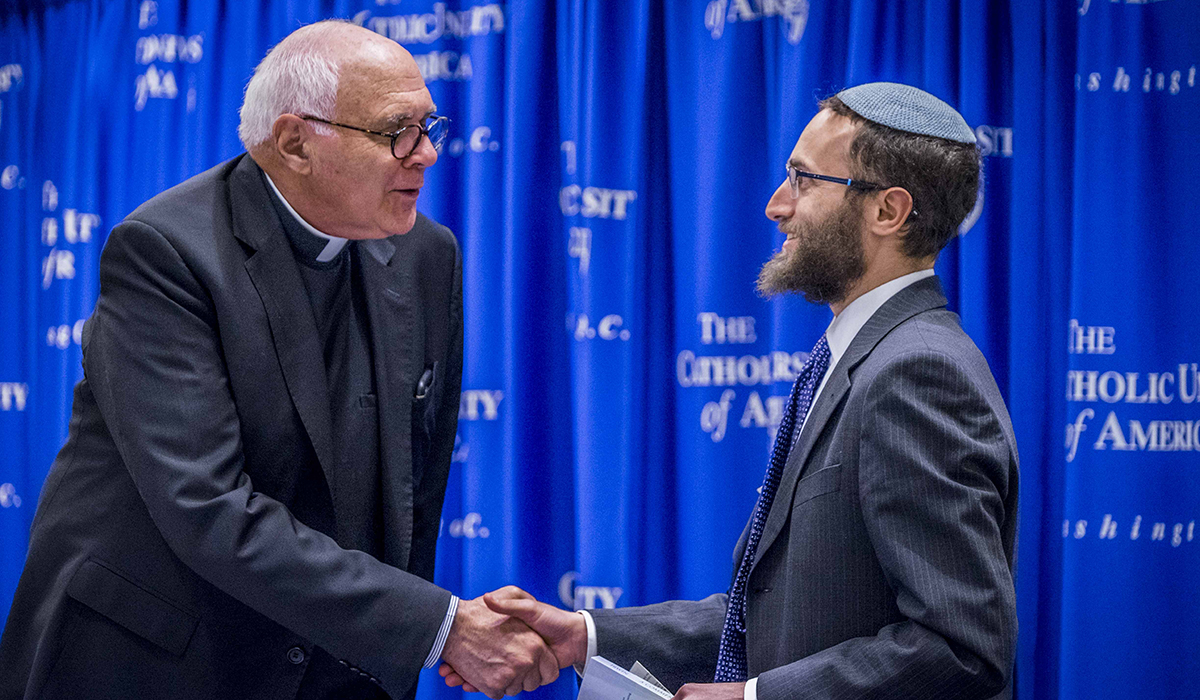

Photo: Jeffrey MacMillan for Interfaith Center for Sustainable Development
Seminary deans and faculty explored ways of integrating faith and ecology into their theology curricula at the Symposium on Ecologically Informed Theological Education held at The Catholic University of America.
In his keynote address on Pope Francis's encyclical Laudato Si' — On Care for Our Common Home at the March 16 event, Monsignor Kevin Irwin, Catholic University research professor, underlined the importance of broadly integrating ecological concerns into theological education.
“Rather than teach a course on Laudato Si' (or even on ecology in general) the concerns of this document should find their way into all courses in seminary curricula,” said Monsignor Irwin. “This would lead to an ecological consciousness across theological specializations and fields.”
The event, which was co-sponsored by the University’s School of Theology and Religious Studies, promoted the expansion of ecology and stewardship to become an integral component of curricula throughout seminaries of all faiths. The symposium offered tools to enable administrators and faculty members from theological schools, divinity schools, and seminaries to better educate students on religion and ecology.
The event was co-organized by the Interfaith Center for Sustainable Development, the Washington Theological Consortium, the Green Seminary Initiative (GSI), and Methodist Theological School in Ohio (MTSO). Other speakers included Timothy Van Meter, associate professor at MTSO and co-organizer of the Seminary Environmental Leadership Initiative; Elaine Nogueira-Godsey, assistant professor of theology, ecology, and race at MTSO; and Laurel Kearns, GSI co-founder and associate professor of sociology, religion, and environmental studies at Drew Theological School.
Seminary faculty and deans conducted workshops that explored a number of topics including ways that seminaries can encourage faculty to incorporate ecology teachings into existing courses in theology, the Bible, homiletics, ethics, and counseling, among others. The event drew 70 participants and speakers from more than 10 seminaries and six states in the Mid-Atlantic region.
The symposium was part of the Seminary Environmental Leadership Initiative, which is funded through a grant from the Luce Fund for Theological Education, an initiative of the Henry Luce Foundation’s Theology Program. The symposium was also supported by the Julia Burke Foundation.